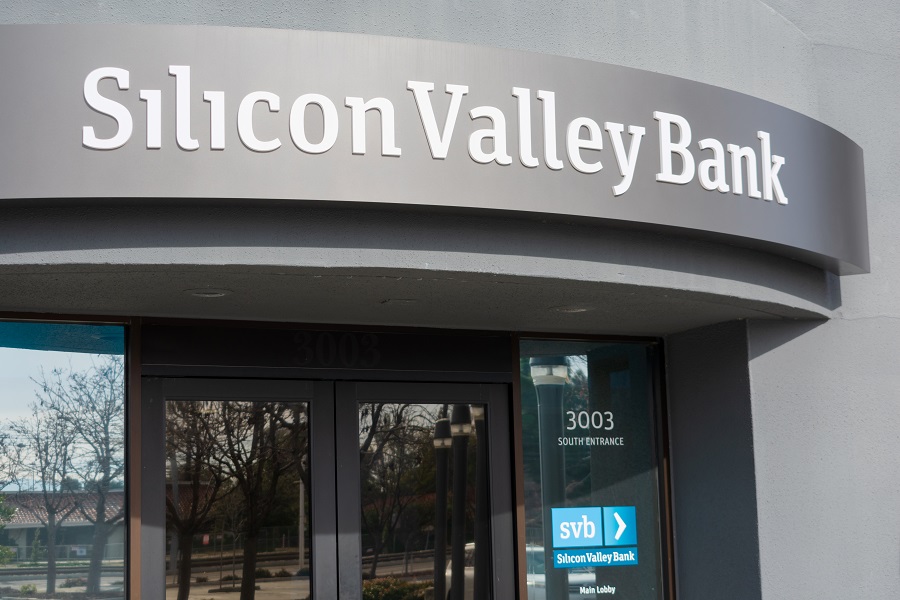The Future of Silicon Valley Bank
The government took over Washington Mutual in 2008, and this could be a model for what could happen to Silicon Valley Bank in the future.
The two biggest banks in the United States, which failed earlier this year, had different economic reasons for their failures, but from the perspective of Silicon Valley Bank, the best outcome would be for another bank to purchase the bank and protect depositors.
Kirsten Grind, the author of The Lost Bank, believes that it is always better to have an ultimate buyer for a failed bank so that customers and the system can regain confidence. However, it's unclear what will happen in this case.
There was a big problem this week with a company called SVB. This has big consequences for the technology industry. The problem is even worse than the one that happened with a company called Washington Mutual back in 2008.
The Federal Deposit Insurance Corporation (FDIC) put both companies into receivership. JPMorgan Chase bought most of Washington Mutual's banking assets for $1.9 billion, which helped protect the bank's depositors.
There is a possibility that the FDIC will try to sell Silicon Valley Bank this weekend. This could help thousands of tech companies get the money they need to pay their bills and their workers. JPMorgan is one of the potential buyers, and it is possible that this would happen.
The FDIC is trying to find a single buyer for the bank quickly to reduce the chance of panic and contagion. Noah Smith, an economist, wrote about it.
Washington Mutual, a Seattle-based savings and loan association, went bankrupt in 2008 due to the subprime mortgage crisis.
Many people are feeling the same pain that they felt during the collapse of Washington Mutual and the takeover of Silicon Valley Bank because the FDIC is taking over Silicon Valley Bank.
Silicon Valley Bank collapse
Washington Mutual's bankruptcy led to the widespread failure of more than 500 federally insured banks within the following seven years. The New York Times reported Friday.
It's not yet clear if this is the beginning of a wider epidemic.
Some analysts say that the pressures that banks are under are very different from one another. The bank had a special focus on companies that are involved in technology and venture capital.
The bank's shares crashed after it said it would make a $1.8 billion loss from securities sales. This caused people to panic and rush to withdraw their money from the bank.
With WaMu, the focus was on mortgages that went bad during the housing downturn. That's not what's going on with this bank.
William Canestaro, managing director of WRF Capital, said that a crisis of confidence isn't necessarily a crisis of fundamentals.
The bank's assets seem to be greater than its liabilities, so the bank's management is more concerned about when money will be available than if deposits are lost.
Former Treasury Secretary Lawrence Summers told Bloomberg that there's no "systemic risk" associated with banks being able to return all their depositors' money.
Robert Burgess, the executive editor of Bloomberg Opinion, believes that a recession may be on the horizon because of the stock market crash that happened last week at SVB.
The bank has a lot of people scared because of what it's done in the past.
Grind said one other difference between Washington Mutual and SVB is that the collapse of Washington Mutual happened over a shorter period of time than the bank's takeover by JPMorgan Chase.
The bank run at SVB started just recently. Customers tried to withdraw a lot of money on Thursday, up to $42 billion, and by Friday, the bank had a negative cash balance of $958 million. That's why the California financial regulators stepped in and put SVB in the hands of the FDIC. California financial regulators filed a report on Friday
The FDIC said that insured depositors will have full access to their deposits by March 13, and SVB's branches will reopen on Monday. The FDIC will pay uninsured depositors an advance dividend within the next week. Most of SVB's deposits are above the FDIC's insurance limit, but the FDIC will pay uninsured depositors whatever is necessary to ensure that they have access to their deposits.
If you are a tech startup or an investor, you need to be very careful about your cash situation. The stakes are high, and there is a lot at stake.
Silicon Valley Bank's failure could wipe out a whole generation of startups, said CEO Garry Tan of famed startup accelerator Y Combinator. "If there is no more action, this will become a contagion that spreads to other startups and other banks," he said on Twitter. depositors must be made whole.
Photo Credit: Depositphotos
